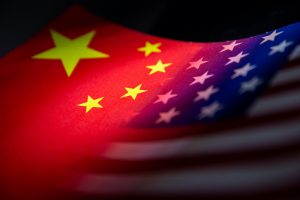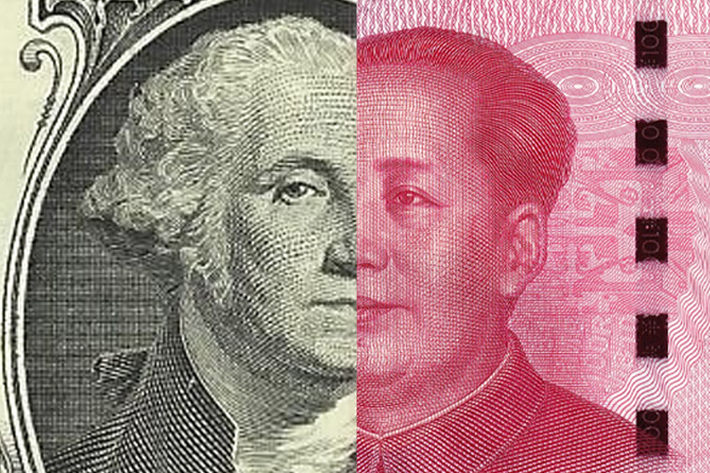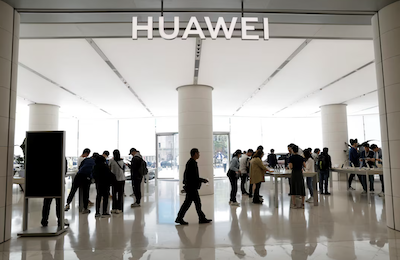Global investors are cutting their bets on China’s private sector and rehashing their portfolios to embrace the Communist Party’s ‘Common Prosperity’ agenda.
The two-year-long socialist campaign, that targets financial services, private education and healthcare, is increasingly driving Beijing’s private sector crackdowns, the latest being an unprecedented anti-corruption campaign against the country’s medical and pharmaceutical sectors.
Beijing will crack down on any sector seen as increasing people’s economic burden, Huang Yan, general manager of private fund manager Shanghai QiuYang Capital Co, said.
Also on AF: Hedge Funds Dump China Stocks Over Property, US Tech War Worry
Push for greater state presence in key sectors
“Whether it’s healthcare or tutoring, a crackdown will befall any sector as long as the campaign benefits the majority of people at the cost of the minority,” Huang said.
Several Chinese government bodies in July launched a year-long anti-graft campaign into the country’s medical system. State media outlet, the Global Times said the crackdown was the “most vigorous” one “ever seen in the healthcare industry.”
The move came as a shock to many investors who had thought Beijing will now prioritise economic recovery amid faltering growth and record high youth unemployment.
The end of Beijing’s three-year regulatory purge of the property and tech sectors was also seen as a sign that there would be no more industry-wide crackdowns.
But Chinese regulators’ latest moves are forcing many investors to draw parallels with last year’s crusade against private tutoring and a long-running one against tycoon Jack Ma’s consumer finance firm Ant Group.
And the one unanimous conclusion they are coming to is that Beijing wants a greater state presence in these sectors.
Science for people, not profit
“The underlying principle is that healthcare is kind of like a social service that should principally be in state hands,” Arthur Kroeber, partner and head of research at Gavekal in New York, said.
Kroeber says the crackdowns on medical services are about “defining what the state does, what the private sector does, and creating a more limited sandbox for the private sector to play in.”
“This links to the idea of common prosperity because it’s the state’s job to guarantee a level of provision of basic services, whether it’s education or healthcare, so it’s important for the state to have a role,” he explained.
Thomas Masi, a partner and equity portfolio manager at Boston-based GW&K Investment Management, spoke to heads of several Chinese firms that he reckoned were at the fore of innovation in healthcare.
“Basically the message they were getting from the government was that they should be doing some of this innovation for national service, as opposed to for profitability only. That was a lightbulb for us,” said Masi, who was once bullish on healthcare.
“We basically understood… we were not necessarily going to be paid as shareholders.”
Buy the state, sell private entities
Chinese President Xi Jinping has often said that private companies should be “rich and loving,” be “patriotic” and share the fruits of their growth with employees more equitably.
And investors now believe Xi will be relentless in his social and economic agenda, much of which draws on Mao Zedong’s Marxist and socialist thinking.
That has prompted global investors to pick the state over the private sector, believing that China’s drive to deliver affordable housing, education and healthcare to its masses was more important.
Also on AF: Beijing’s Crackdown Wiped $1.1 Trillion Off Chinese Big Tech
While the CSI Medical Services Index is down 4.4% this month and 20% so far this year, investors have snapped up shares of state-owned medicine producers such as Beijing Tongrentang, which is up 14% this month.
Similarly, the expectation that state-backed property firms will gain better access to funding and bigger market share has seen investors dump private developers’ stocks and rush into state-owned developers such as Yuexiu Property and Poly Developments.
Zhang Kexing, general manager of Beijing Gelei Asset Management, expects healthcare companies with strong branding will benefit, as will firms in traditional Chinese medicine, which has political support, such as Beijing Tongrentang.
Less visible sectors may be spared
Nuno Fernandes, also a partner and portfolio manager at GW&K, says it is important for investors in China to recognise the power of the state to override private interests, which means companies will need to “make a profit out of whatever circumstances and situation they are given.”
That is why Fernandes has slashed his portfolio holdings in Chinese drugmakers.
Meanwhile, Shanghai QiuYang’s Huang believes Beijing may ignore other sectors such as infrastructure, where such excess is less visible.
Kumar Pandit, portfolio manager at Somerset Capital Management’s Emerging Markets Dividend Growth Fund in London, is not cutting his China exposure but has an “added layer of scrutiny” around sectors Beijing deems important to common prosperity.
While the probability of wider crackdowns is low, he said making decisions remains challenging.
“It is difficult to say with certainty whether the crackdown will spill into other sectors,” Pandit said.
- Reuters, with additional editing by Vishakha Saxena
Also read:
China Bankers to Shun ‘High-End Taste’ Fearing Regulatory Ire
New China Premier Vows ‘Better Environment’ for Private Sector
China’s Luxury Sector Starting to Hit Some Headwinds
China’s ‘Common Prosperity’ All About Control, Says Academic
How To Invest Amid China’s Era of ‘Common Prosperity:’ Societe Generale
Alibaba, Tech Titans To Invest Billions In China’s ‘Common Prosperity’ Plans
























